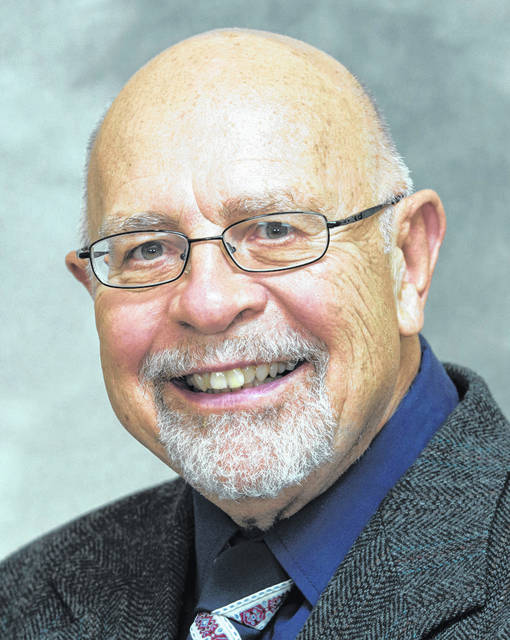

Last Wednesday my old friend was buried in Warsaw, Poland. My wife Gosia and I could not attend. The coronavirus quarantines U.S. visitors for two weeks.
Here is what I would have read at his wake:
Zdislaw Swiecki was born Jan. 22, 1934. Four days later, the independent Polish Republic and Nazi Germany signed a peace pact.
Small and somewhat frail, Zdzisek (his nickname) had an early happy childhood. Like many boys, he caught the stamp collecting bug. Those who catch it get transported to worlds they can only dream of visiting. Those colorful pieces of paper can be purchased for a few cents. Rare stamps could pay off your mortgage.
He lived in Poland’s era of terror. The monster Hitler’s storm troopers invaded the country on Sept. 1, 1939. On Sept. 17, the accursed Stalin followed suit with his Russian army. By October, divided Poland was a nation in memory only. Nearly six million Poles changed residence to the graveyard.
Hitler shocked Russia by scrapping their demonic alliance in 1941 and sending Nazi troops to obliterate Russia. A bitter winter stopped Operation Barbarossa cold. Soundly spanked by Stalin, a Germany weakened in fuel, supplies and fighting forces finally surrendered.
The wrath of Hitler decimated Warsaw in 1944. The Poles staunchly, if unwisely, staged the Warsaw Uprising. Polish citizens fought storm troopers on the street. Any child or adult caught by the Gestapo was tortured and executed.
Zdzisek did whatever errands he could for the resistance. Unlike adults, children could transmit a message from one defender to another. He was like a postman but his envelopes bore no stamps.
Although Poland was a staunch fighting force with the Allies, the 1945 Potsdam treaty with the “Big Three” of Churchill, Stalin, and F.D. Roosevelt caved to Stalin’s demands. A divided and no longer independent Poland went to the USSR as a bounty.
Times were hard in Poland throughout the 1950s. If you worked a government job in the cities or on a government farm, you could get by.
But Zdzisek had the soul of an entrepreneur. He knew the value of stamps and which ones to keep and which to discard. Plus, he had the gift of gab. He knew how to bargain.
In time he bought and sold stamps as an independent businessman. Organized and meticulous, he organized albums by country. All the while he built his own collection that was second to none.
On the side he attended the Technical University of Warsaw. He was clever but needed to support himself and a family. It took him 12 years to graduate as an engineer with a master’s. Some months he made more money dealing in stamps than he would have earned as a government employee.
While in school he bonded with a cadre of engineering friends, including my wife’s father, an immigrant from Vilnius, Lithuania. They held frequent gatherings, always over food, and usually a little vodka. Zdzisek adored making toasts.
Nearly five years ago I attended one of these feasts in at the rural cabin owned by my soon-to-be wife and her father.
There I met this tiny man with a wicked sense of humor and a funny hat clamped tight above his ears. Naturally, we talked stamps. I am a lifelong collector.
He called Gosia his “second daughter.” She called him Uncle with deep respect.
He introduced me to his wife who dresses only in purple.
Although my Polish and Zdzisek’s English were limited, it was no problem.
Gosia and Zdzikek’s daughter Anna are expert translators. Like her father, Anna is an adventurer and travels all over Europe and Asia.
He took me to a Sunday gathering of stamp sellers at a former high school. In my 70s, I was younger than all sellers and about half the buyers.
He took me from seller to seller to build my collection of Polish authors on stamps. He did the bargaining, saving me zlotys. Soon, my own albums filled blank spaces with stamps devoted to novelist Joseph Conrad, Nobel laureate Wislawa Szymborska, and more.
I visited Poland often ever hence. Each visit we came to his lovely home in the suburbs. Each visit he showed me his valuable albums. He picked up many stamps in person on visits to Mexico, South America, Korea, Cuba and more.
Each visit I brought him rare U.S. stamps. Each visit he gave me Poland First Day Covers.
We once giggled that we should have our photos on a stamp. Then our foes would have to lick our backsides. He shook with laughter at this.
Now my visits to him are over. Zdzisek clamped his hat on his head and drove himself to the hospital. He died there of natural causes.
In the U.S., the Postal Service allows you to order custom stamps. You take a photo, send a check to the Postal Service, and get one-of-a-kind stamps in return.
I intend to put a nice photo of Zdzisek on a stamp. Next visit to Poland I’ll open his album of U.S. stamps for the last time. There his sheet of stamps will rest for eternity.
I wish I had given this small gift while my friend was alive. Do widzenia, Zdzisek.






